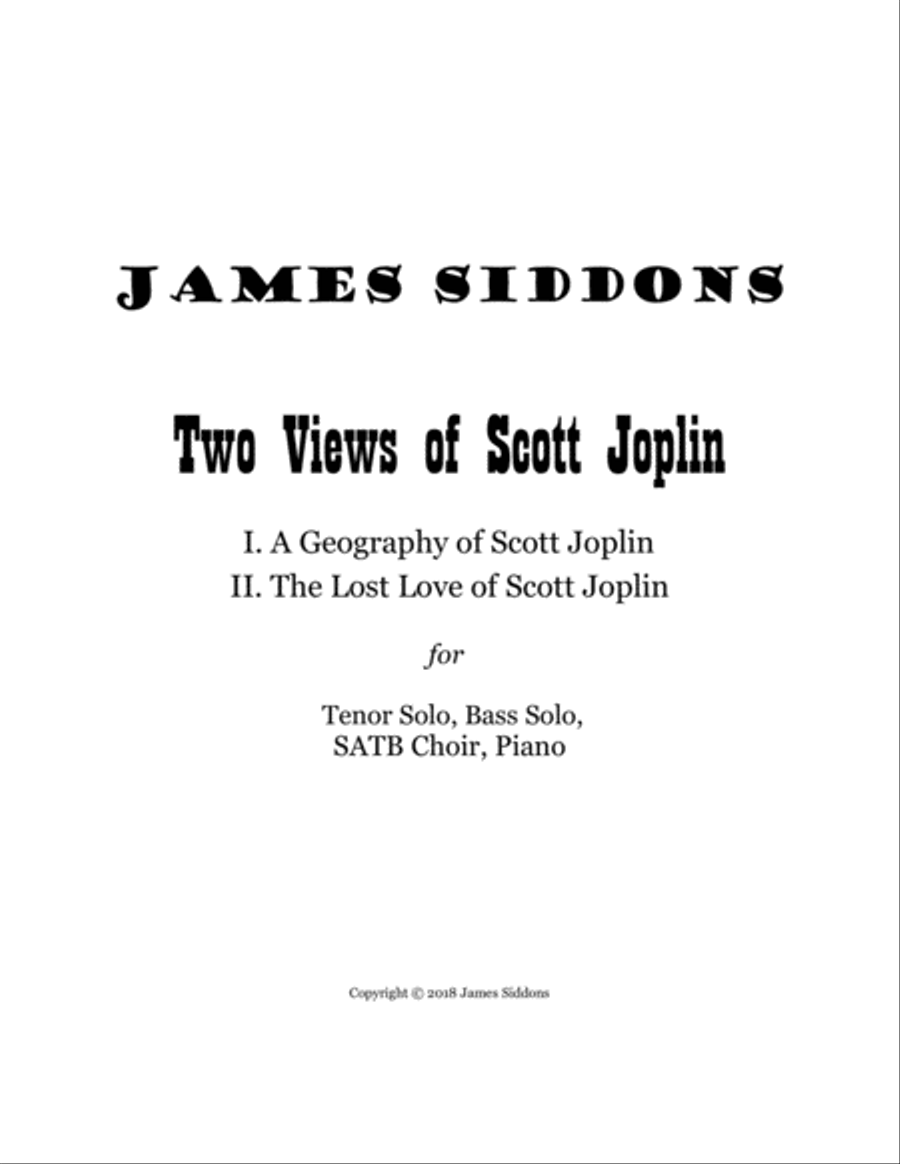Choral Choir (SATB) - Level 3 - Digital Download SKU: A0.972650 Composed by James Siddons. Contemporary,Opera,Ragtime. Octavo. 79 pages. James Siddons Music and Writings #4898807. Published by James Siddons Music and Writings (A0.972650). Two Views of Scott Joplin is an exploration of a personal and artistic crisis that Scott Joplin, the King of Ragtime, went through between 1904 and 1906. This crisis was precipitated by the untimely death of Freddie Alexander in September 1904, to whom Joplin had been married only ten weeks. Knowledge of this marriage was lost to history for almost a century until the Joplin scholar Edward A. Berlin discovered the newspaper obituary, which is quoted in the bass solo in Part II, The Obituary of Freddie Alexander. Apparently, Scott Joplin, already inspired by the progressive ideals of Booker T. Washington, saw a path to social and artistic betterment through his love of Freddie, a daughter of a refined family. During this period, Joplin used the title rag less often in his piano-solo works, and nurtured an interest in opera (he had long been active in vaudeville as well as ragtime piano). He seems to have lost his sense of direction in 1905 and 1906, until led by his publisher John Stark to move to New York City in 1907. Once there, apparently growing out of his grief, Joplin studied with an Italian opera singer and composer, composed his folk opera Treemonisha, and composed Wall Street Rag and his other late masterpieces for piano. Joplin died in April 1917 following two years of debilitating illness. Joplin left almost no personal writings, such as letters or diaries. To create an impression of autobiography, Two Views of Scott Joplin consists mostly of words and music written by Scott Joplin, and piano music composed by two close associates, the composer-pianists Louis Chauvin and Scott Hayden. These words come from Treemonisha, from Joplin’s little-remembered vaudeville and parlor songs, and also from text in his sheet-music---copyright notices, publishers’ addresses, titles and subtitles of rags, performance directions. In most cases, selected lyrics are extracted from songs and paired with piano-solo themes. These ingredients are combined in creative ways to express the biographical narrative. Instrumental themes are re-cast as necessary to express their newly-attached lyrics. But in no place can any of the music in Two Views of Scott Joplin be considered an arrangement of a given, intact composition, nor a medley of tunes, nor a theatrical revue. The character development and dialogue found in Scott Joplin’s Struggle with Destiny (Part II, No. 3) is my own biographical interpretation of Joplin, based on known evidence and on his music.The score contains extensive Performance Notes for performing this 16-minute work as a choral work or as a short opera scene.
